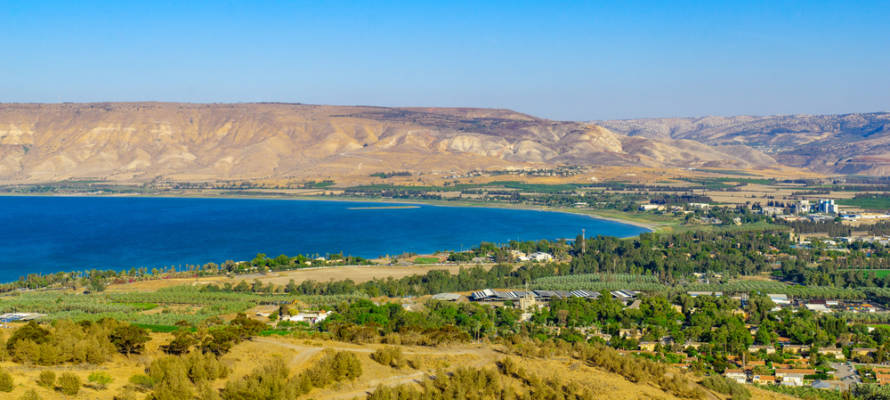The Sea of Galilee is rising so rapidly that it may reach levels sufficient to open the Kibbutz Degania Dam and feed the depleted Dead Sea.
By Tsivya Fox-Dobuler
For nearly two decades, Israel has suffered from rains well below what is needed to maintain the Sea of Galilee (the Kinneret in Hebrew), which is the country’s only source of fresh water.
However, this year’s abundant rainfall, and even snow, caused a steady rise in the lake, enough to possibly open the Kibbutz Degania Dam that feeds the Jordan River and flows down into the depleted Dead Sea in the Negev.
The lake’s water levels are closely watched. Over the past 20 years, visitors to the tourist sight, as well as locals, report heartache at seeing the sea’s regression.
“We went on a family trip to Tiberias [a city on the Sea of Galilee] in 2009,” resident Miriam Hughes told United with Israel. “There was a sign saying, ‘Do not swim here without a lifeguard on duty.’ We walked a good few minutes from that sign until actually reaching the water. It was very sad and shocking and has only gotten worse since then. It’s amazing that the lake has nearly returned to its formal glory.”
This past week alone, the Kinneret rose 18 centimeters (seven inches) and nearly two meters since the start of Israel’s rainy season, according to Israel’s Water Authority. It is just 1.24 meters (about four feet) from its full capacity.
Should it reach that level, the Kibbutz Degania Dam will be opened, something that has not happened since 1992. Opening the dam not only protects cities bordering the Kinneret from flooding but also feeds the Jordan River, which flows into the Dead Sea. According to Israel Water Authority spokesman Uri Schor, there is a 50 percent chance that the dam will be opened.
The Dead Sea, which is the lowest spot on earth, is a major tourist site as well as a known place for healing skin illnesses due to the rich minerals found in its water. However, following years of near-drought conditions in Israel, the Dead Sea has also receded to shockingly dangerous levels.
“Similar to what I experienced at the Kinneret, my husband and I went to the Ein Gedi Spa on the Dead Sea to enjoy a therapeutic day of rest and relaxation,” Hughes said. “Where one easily could walk from the spa to the Dead Sea, today, a tram ride is provided as it is a long walk to reach the water due to its recession.”
